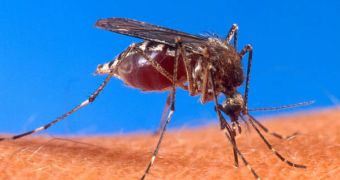Mosquitoes have been some of our worst enemies most likely since mankind developed. The winged creatures can be a real nuisance through the noises they make at night, when you try to sleep, and that in itself is enough to get you mad. But, in some regions of the world, the hum they make has the same ring to it as death. With mosquitoes carrying such diseases as malaria, the dengue fever or the yellow fever, efforts of destroying them are well founded. The latest proposal on how to kill them comes from experts at the International Atomic Energy Agency (IAEA), who say they should be irradiated to death.
Though this may seem a little extreme, the scientists at the international nuclear watchdog believe that doses of radiation, unable to harm humans, could easily destroy the insects, rendering their ability to multiply close to zero. They argue that the ability existing pesticides have of keeping mosquito populations in check is rapidly declining, and that these substances could soon become obsolete altogether. The team also explains that the sterile insect technique (SIT) has already proven its worth, drastically reducing the numbers of tsetse and fruit flies, which were a real nuisance too.
IAEA Medical Entomologist Mark Benedict explained for the BBC News that the technique was, in fact, very simple. A batch of mosquito larvae are lowered into a specially designed machine, where they are irradiated at a certain intensity for a pre-determined amount of time. When they are lifted from the enclosure, they are about as sterile as they get. When they hatch, the males of the species will look for females to mate, and, in doing so, will ensure that all of the hundreds of eggs the females deposit will not hatch. The upside is that a female mosquito regularly mates only once in its lifetime.
The new SIT methodology will soon undergo testing in Sudan, on the banks of the river Nile. Despite the fact that there are relatively few mosquitoes there, as opposed to other parts of the world, a high incidence of mosquito-transmitted malaria has been recorded in the area over the past few years. The experts will spread the sterilized eggs on the banks of the river, and then observe their impact on the number of wild mosquitoes. “That will give us a good idea of over what area we can release and what population densities we can see controlled,” Benedict said.

 14 DAY TRIAL //
14 DAY TRIAL //